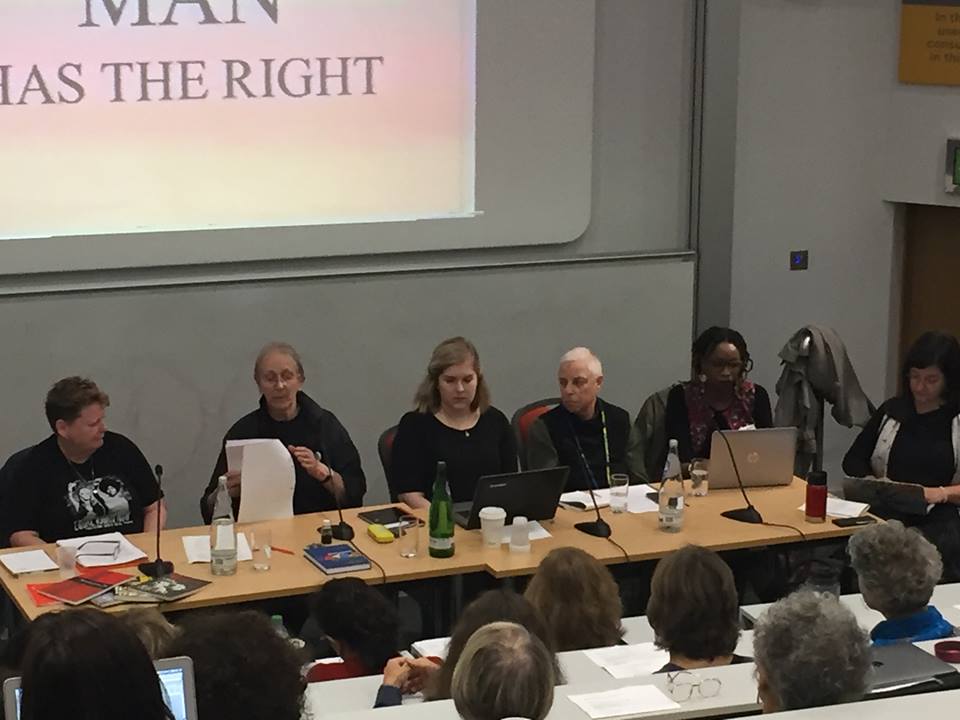Contact with the UN
A prominent UN Committee draws on GFKT data and research
On October 31 2017, a high-level delegation from Israel, including officials from several government ministries appeared before the UN CEDAW committee (Convention for Elimination of All Forms of Violence Against Women), which periodically reviews UN member states on their compliance with the convention. One of the questions put to the delegation raised the issue of security guards’ off-duty arms. A committee member noted that a procedure, “allowing off-duty security employees to carry weapons home” was stopped in 2013 “but … was back in March 2016.” She stated, “It may result in increased killings, mainly for women and it happened during 2013,” then asking the delegation, “Do you envisage changing such practice which is a dangerous practice?” While GFKT had no previous contacts with the CEDAW committee, there is no doubt that the question drew directly on GFKT data and publications.
In answer to the question, one of Israel’s delegation members stated that the policy, “in this regard is regularly reviewed in light of the current circumstances.” This, however was not the case, as demonstrated clearly by comprehensive information obtained by GFKT though an administrative petition to the court filed in February 2017. On November 5 2017, we accordingly wrote the Director General of the Ministry of Justice, a senior member of the delegation, warning that, “Israel’s response to the question regarding small arms policy was inaccurate (to put it mildly) and in fact misled the committee. … In practice, the policy allowing guards to bear arms after duty is renewed offhand, without any prior data collection or factual grounding, claiming a need for ‘defense from terrorist attacks.’ Information obtained through the petition shows that in actuality renewal is automatic. Moreover, over a year and a half, the minister and his ministry presented no testimonies or data substantiating the delegation member’s claim that bearing arms after duty provides ‘significant addition in protecting the public from acts of terror.’”
Additional letters detailing this information were sent to the Chair of the CEDAW committee and to the UN Special Rapporteur on Violence Against Women.
Testimony to the UN Special Rapporteur on the Situation of Human Rights Defenders
On December 3rd 2017, Rela Mazali, Coordinator of GFKT, was one of a group of feminist activists who reported to the UN Special Rapporteur on the Situation of Human Rights Defenders. At the Rapporteur’s request, the testimony focused on the situation of Israeli women human rights defenders, including those whose activities include a critique of militarization and of the tools for its implementation. The meeting was convened and organized by activists from the Human Rights Defenders Fund.

International academic conferences
Addressing a conference at the School of African Studies, University of London
Rela Mazali’s presentation at the conference Bridging Academic, Activist and Policy Work, at SOAS Center for Gender Studies, University of London, briefly introduced the work of GFKT. The event, held in October 2017 in honor of the rich contribution of scholar and activist Cynthia Cockburn, examined feminist forms of engagement and struggle with new manifestations of patriarchy and militarization.
Participating in a seminar on Feminist Action Against Mass Civilian Armament – Capetown
In March 2019, a seminar on Feminist Action Against Mass Civilian Armament at the University of Capetown Safety and Violence Initiative hosted GFKT Co-Founder and Coordinator, Rela Mazali. This was preceded by meetings and discussions with Adele Kirstein, Founder and Director of Gun Free South Africa, among others to monitor the work of a parliament committee and, in another instance, to reflect on impacts of UN Resolution 1325 on militarization and small arms along with critical feminist scholars and activists, Vanessa Farr and Samantha Cook.
International media
GFKT’s debut in the New York Times
On March 2 2017, GFKT was cited as a source in a NYTimes article, drawing an important comparison of gun licensing laws in 15 countries. The article details samples of preventive lawmaking – and thinking – such as: “in South Africa, Australia and India [authorities] may talk to people you know who can vouch for you or raise red flags…. In addition to two character references, Canadians must list the names of partners they have lived with in the last two years, all of whom must sign the application or be notified by the police before you can buy a gun. … Germans who keep firearms in their homes agree to let the police conduct unannounced home inspections to check that they are kept safely.” Not one of these reasonable measures features in the proposal for Israel’s new Firearms Law.
GFKT in Newsweek
On August 22 2018, days after Israel’s Minister of Public Security announced his new policy of mass civilian armament, Newsweek published a critical overview of the policy change, introducing GFKT and citing data from our “Loose Guns” report.
GFKT Presence in International Media and New Media
In the decade since its foundation in 2020, GFKT staff have been interviewed and its research and data quoted on Australian ABC Radio, Al Jazeera, on Muftah, the Wall Street Journal, Vice News, Voice of America, on the Dutch NRC, on Mondoweiss and on Middle East Eye. GFKT quotes and findings also figure on the websites of partner organizations including the worldwide IANSA network, Kvinna till Kvinna, NCJW, the Nobel Women’s Initiative the Rosa Luxemburg Foundation and others.
Our Activities
Legal work and campaigns

Would you like to get our updates?
Subscribe to our mailing list
Issues and Facts
Articles & Reports


